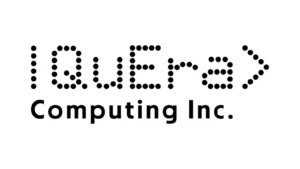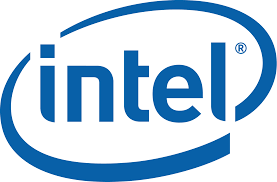
The world of quantum technology is rapidly evolving, with advancements that promise to revolutionise a plethora of use-cases across many industries. From the world’s first commercial flight with GNSS-free navigation, to provably-secure communications over 3,800km, to realising viable cancer drug candidates, quantum technologies are set to revolutionise many sectors. At the heart of this revolution lies the quantum ecosystem, a vibrant network of quantum technology companies, academia, end-users, investors and more, working together to boldly push new boundaries in capability. This may have you wondering, what companies are working quantum computers? In this blog, we will spotlight top quantum companies, key players and innovations to offer a holistic insight into the quantum ecosystem.
✳️The Quantum Ecosystem
Comprising a diverse array of entities, including tech giants, academic institutions, government research agencies, and startup quantum companies, the quantum ecosystem is a nascent field growing strongly. There are a number of distinct symbioses between many players, often collaborating on research projects and sharing expertise on domestic and international scales. The ecosystem is characterised by a blend of theoretical research, practical applications, and building educational opportunities, with the goal of fostering the second quantum revolution to realise new potentials in unparalleled precision measurement, unique computational capabilities, and secure communication channels.
Quantum Technology Companies
At the forefront of the quantum ecosystem are the quantum technology companies. These companies are the engine driving technological developments, creating commercially viable hardware and software, as well as understanding potential use-cases. From pre-seed startups to tech giants, there exists a multitude of emerging technologies and industry players, too many to cover in this blog though we shall start with some of the biggest names.
Top Quantum Technology Companies ⬇️
Several companies have emerged as leaders in the field of quantum technologies. As quantum computing generally dominates the quantum zeitgeist and investment landscape, most top quantum companies align to this pillar. These top quantum technology companies are recognised for their cutting-edge research, significant investments, and successful developments.

Quantinuum was created following the merger of Cambridge Quantum and Honeywell Quantum Solutions and has made significant strides in the quantum computing space with its trapped-ion qubit technology. They have been involved in numerous significant collaborative projects. Their high fidelity and low error-rate qubits and developments in scalability are attractive for both research and commercial applications, currently boasting the world’s highest quantum volume in their H1-1 system.

D-Wave Systems specialise in quantum annealing, a specific type of quantum computing focussed on optimisation problems. Their expertise in quantum annealers granted the world’s first commercially-available quantum computer in 2011, with their large qubit count making D-Wave’s quantum computers attractive candidates for use in various industries, including finance, logistics, drug discovery and more. The company’s unique approach to quantum computing positions it as a leader in practical applications of quantum technology.

Pasqal is a French startup specialising in developing and commercialising quantum computing hardware based on neutral atom technology. Pasqal’s innovations in quantum computing aim to solve complex problems across various industries.

QuEra is another big name in neutral atoms quantum computing. QuEra has recently shown significant developments in their capabilities, showcasing 99.5% two-qubit entangling gate fidelity across 60 qubits – an unprecedented result with significant implications for future fault tolerant quantum computing.
Rigetti Computing is a startup known for its hybrid quantum-classical computing approach. By integrating quantum processors with classical computing resources, Rigetti leverages the strengths of both technologies, proving an attractive solution of large projects including the fusion energy research with US Department of Energy. The development of Rigetti Forest, a comprehensive software development kit, helps in bolstering the quantum technology ecosystem allowing users to develop and run quantum algorithms on Rigetti’s quantum processors.
Biggest Quantum Companies 🌍
The biggest quantum companies are distinguished by their substantial investments in research and development, as well as their large-scale collaborations with academic and industrial partners.
![]()
With an extensive legacy in computing technologies dating back to early-20th century, IBM, namely its division IBM Quantum, is one of the biggest and most prominent players in the quantum ecosystem. Primarily focussed on developing superconducting quantum computer technologies, including first-of-its-kinds chip featuring over 1,000 qubits and modular utility-scale quantum computing system, IBM is undoubtedly one of the biggest quantum companies and has played a significant role in support of the emerging quantum workforce, including hosting its annual Hackathon. In 2016, IBM launched IBM Q Experience, the first commercially cloud-based access to quantum computers, and later, Qiskit, their open-source software development kit, enabling researchers and developers worldwide to experiment with quantum algorithms and use-cases. Additionally, IBM developed the notion of Quantum Volume, a useful metric in determining the power of quantum computers. Having recently published their 2033 roadmap, we will likely continue to see IBM Quantum remain among the top quantum technology companies.

Google’s Quantum AI division is another top player in the quantum computing landscape. Known for controversially achieving quantum supremacy in 2019 with its Sycamore processor, reporting a random circuit sampling experiment that, according to estimates, would take a classical computer roughly 10,000 years; and, in 2023, the team was the world’s first to report scalable quantum error correction, demonstrating reduced errors by increasing qubit count. Google continues to innovate in superconducting quantum computing hardware and algorithms. They also released Cirq, an open-source framework for programming quantum computers, facilitating collaboration and innovation within the community, helping democratise research in quantum circuits. As one of the top quantum companies as well as a tech giant, their expertise and technological developments are sought out in international partnerships and supporting the growth of the quantum workforce.

Microsoft do not currently have quantum hardware of their own, however, are focused on developing a scalable quantum computer using topological qubits. This unique approach promises higher error tolerance and stability due to the qubits’ innate noise-suppression. Microsoft also launched Azure Quantum platform, providing access to various quantum hardware providers, fostering an open ecosystem where developers can experiment with different quantum technologies.

As a major player in the semiconductor industry, Intel’s quantum computing efforts are an extension of its expertise in microelectronics. They focus on developing silicon-based qubits, which offer potential advantages in terms of scalability and integration with existing semiconductor technologies.

It would be impossible to discuss the biggest quantum companies without mentioning the first quantum unicorn, PsiQuantum. The photonic quantum computing experts have attracted a lot of investment, including recent AU$1 billion from the Australian Government, and are focussed on building the first large-scale, fault-tolerant quantum computers. The company’s ambitious goal from inception is to develop a quantum computer which hosts one million qubits. PsiQuantum’s innovative approach and strong research foundation make it one of the best quantum companies to watch.
🔝Best Quantum Companies
The best quantum companies are those that not only lead in technological advancements but also demonstrate a commitment to fostering a robust quantum ecosystem. These companies are often recognised for their contributions to both fundamental research and the development of practical quantum applications.

IonQ is a leading quantum computing company known for its trapped-ion technology and being one of the first public-trading quantum startups. IonQ’s quantum computers are accessible through various cloud platforms, making them available to researchers and developers globally. The company’s focus on high-quality qubits, error correction and scalability position it among the best quantum companies. Additionally, they are active in supporting the international quantum workforce development.

Based in Toronto, Canada, Xanadu is a photonic quantum computing company strong focus on developing both hardware and software solutions. The company’s open-source software platform, Strawberry Fields, enables researchers to develop and test quantum algorithms using photonic hardware.
✴️What Companies Are Developing Quantum Computers?
There are several other companies which haven’t yet reached the technological capacity of the aforementioned groups but are actively working on their own quantum computing solutions.

QuTech, a collaboration between Delft University of Technology and TNO (Netherlands Organisation for Applied Scientific Research), is dedicated to advancing quantum computing and quantum internet technologies.

Quantum Circuits Inc., founded by Yale University researchers, focus on scalable quantum computing platform using superconducting qubits. QCI’s innovative approach includes developing error-corrected qubits and advanced quantum control techniques.
What Companies Have Quantum Computers?
Outside of quantum technology companies, there are a number of end users which either own a quantum computer or actively seek their use via partnerships with quantum companies. Some examples include Volkswagen, J.P. Morgan, BASF, Goldmann Sachs, and Daimler A.G.
Innovations Driving the Quantum Ecosystem
The quantum ecosystem is driven by continuous innovation in both hardware and software. Key areas of innovation include qubit technology, error correction, quantum algorithms, and quantum communication. These advancements are essential for overcoming the challenges associated with building scalable and reliable quantum computers.
❇️Qubit Technology
The development of high-quality qubits is fundamental to the progress of quantum computing. As discussed, many approaches to qubit technology are being explored, including superconducting qubits, trapped ions, and photonic qubits. Each approach has its advantages and challenges, and ongoing research is focused on improving qubit coherence, stability, and error rates with no clear breakout technology categorically defeating the others.
❇️Error Correction
Quantum error correction is a critical area of research aimed at addressing the inherent fragility of quantum states. Techniques such as the surface code and topological qubits are being developed to protect quantum information from errors and decoherence. Effective error correction is essential for building large-scale, fault-tolerant quantum computers.
❇️Quantum Algorithms
The development of quantum algorithms is crucial for unlocking the potential of quantum computing. Researchers are exploring algorithms for a range of applications, including cryptography, optimisation, and machine learning. Notable examples include Shor’s algorithm for factoring large numbers and Grover’s algorithm for searching unsorted databases.
❇️Quantum Communication
Quantum communication technologies, such as single-photon sources and detectors to enable quantum key distribution, are being developed to enhance the security of data transmission. These technologies leverage the principles of quantum mechanics to create secure communication channels that are immune to eavesdropping. Innovations in quantum communication are paving the way for the development of a quantum internet of things.
The Future of the Quantum Ecosystem
The future of the quantum ecosystem is bright, with significant advancements expected in the coming years. As quantum technology companies continue to innovate and collaborate, we can anticipate breakthroughs that will transform industries and redefine the limits of computation. The ongoing investment in quantum research and development, coupled with the growing interest from businesses and governments, will drive the ecosystem’s growth and maturity.
🟡Commercialisation and Accessibility
One of the key trends in the quantum ecosystem is the commercialisation and increased accessibility of quantum technologies. As quantum computers become more powerful and reliable, they will be deployed in even more industries to solve complex problems, the likes of which we may not even be aware of at this time. Cloud-based platforms will continue to play a crucial role in making quantum computing accessible to a global audience, democratising the technology, fostering innovation, and supporting future workforce development.
🟡Education and Workforce Development
As the quantum ecosystem grows, there will be a greater need for education and workforce development. Universities and institutions will play a crucial role in training the next generation of quantum scientists and engineers. Additionally, initiatives to promote quantum literacy among the broader public will help build a foundation of knowledge and support for the technology’s future.
However, as the ecosystem continues to grow it will become increasingly interdisciplinary where a rapid uptick in jobs within the quantum ecosystem. Not only will academic pathways have to radically adapt to changes in skills requirements but also innovate training is required to train existing engineers, business leaders, and more to become proficient in quantum physics. This is where QURECA plays a vital role. Courses such as Quantum for Everyone 2.0 and Quantum Strategy for Business provide those with no quantum experience with valued insight, key skills, and technical proficiency to become active in the quantum technology ecosystem. Additionally, QURECA’s own business strategy development provides businesses with tailored consultation on how quantum technologies can benefit them including how to develop their own quantum strategy.
🟡Ethical and Societal Considerations
The rise of quantum computing also brings ethical and societal considerations that must be addressed. Issues such as data privacy, security, and the potential impact on existing industries will require careful consideration and regulation. Engaging with policymakers, ethicists, and the public will be essential to navigate the challenges and opportunities presented by quantum technology.
Exploring the Quantum Ecosystem – Conclusion
The quantum ecosystem is a dynamic and rapidly evolving landscape, driven by the efforts of all quantum companies, national initiatives, as well as avid end-users. As we continue to explore the possibilities of quantum computing, the contributions of these key players will shape the future of technology and its applications. From developing scalable quantum computers to advancing quantum communication, the innovations emerging from the quantum ecosystem promise to transform industries and redefine the boundaries of what technologically possible. With ongoing investment, collaboration, and a commitment to addressing ethical considerations, the future of the quantum ecosystem is poised for remarkable advancements and breakthroughs.



